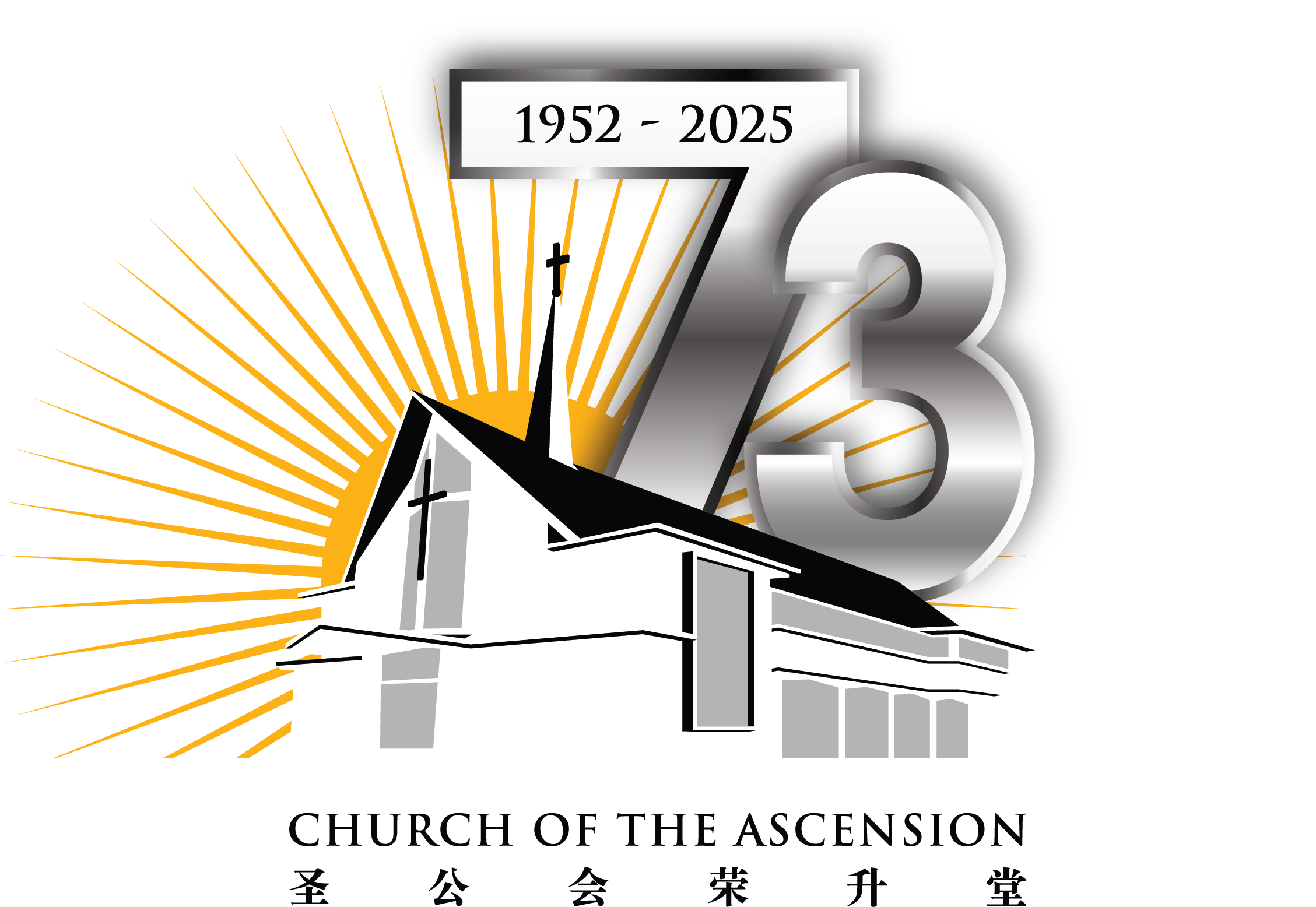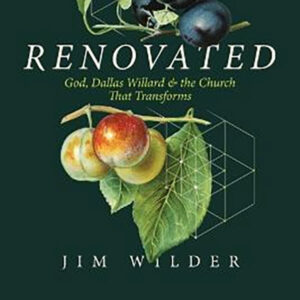
was reviewed
by Jovan Sim.
Book Review of “Renovated” by author Jim Wilder
Many Christians face struggles when growing in “the grace and knowledge of our Lord and Savior Jesus Christ” (2 Peter 3:18). We want to be transformed to be more like Christ. We throw ourselves into a myriad of spiritual disciplines and see no significant difference in our lives in Christ. What are Christians doing wrong? What haven’t we done right? Jim Wilder, Ph.D. in Clinical Psychology and M.A. in Theology, attempts to bring hope of radical spiritual formation in Christ with his book – Renovated: God, Dallas Willard and the Church that Transforms.
A Very Brief Summary:
In the first few pages of Renovated, Wilder mentions Dallas Willard’s wife, Jane, who is a licensed therapist. As a therapist,
“Jane had constant contact with people who experienced less success at the Christian life than they hoped to have. Traumatised people were not achieving the degree of transformation they expected. She noticed that commonly proposed solutions worked for some people but not as well for others. Good-hearted people were working very hard using both theological and psychological approaches and still not seeing their desired change into the character of Christ.”
Wilder goes on to explain how neuroscience might be our answer to many problems faced in the process of spiritual formation. Renovated contains many teachings of Willard during the Heart and Soul Conference. Wilder expands on these teachings and goes further to propose the way moving forward (and how his proposals were most likely what Willard would have endorsed as well).
Wilder’s fundamental argument is that “we would be both saved and transformed through attachment love from, to, and with God.” Attachment love refers to the Hebrew word hesed. This hesed love is formed through Jesus, with a God who is present and interacts with us. Throughout the rest of the book, Wilder makes an emphasis about thinking with God rather than thinking about Him (though the latter was mentioned to be of great importance as well). “Mutual mind” is of paramount importance when thinking with God: “Everything from teamwork to intimacy depends on it.”
As Wilder puts it,
“Without mutual mind, we will fail to react as God is reacting. Only in retrospect will we think of what God wanted when things happened. By that point, we already will have responded without the character of Christ.”
Wilder then goes on to explain how we have relied on the “slow-track” part of the brain (conscious, detail-focused) for our spiritual formation and according to Wilder, it is the “fast-track” where character change happens. The “slow-track” would indeed be very slow in producing results.
The author continues to expand on the aforementioned pointers and proposes alternatives to Willard’s teachings (eg. VIM model). At the end of the book, Wilder gives many suggestions to how the church may apply practices for hesed attachment.
Reflections:
A huge part of Renovated is essentially a transcript of Willard’s teachings during the Heart and Soul Conference. As Wilder expands on Willard’s teachings, I appreciate how:
- There is a constant focus on the relational aspect of spiritual formation.
- Neuroscience is introduced to create a transformational understanding of how Christians may better pursue Christlikeness.
As the book is centred around attachment love, it is clear that our relationships with family, friends, primary caregivers, etc, matter very much. Wilder uses many apt stories from the Bible to explain how relationships are very much an interactive and interwoven element in our spiritual formation in Christ. Additionally, with this written work, Wilder takes serious responsibility in discovering and studying what God has created (ie. the brain). With his discoveries in the field of neuroscience, Wilder affirms the truth of God’s Word and attempts to shed light on how Christians may better pursue Christlikeness.
Personally, I enjoy engaging in the intellectual exercise and academic reading of God’s Word as a means of drawing close to God. While God’s Word, living and active (Hebrews 4:12), is very much present in my life, I must admit that I only think about God most of the time. Wilder assures us that thinking about God has a lot of value. However, thinking with God is of greater importance. Perhaps, it enables Christians to avoid the word of God being “choked by the cares and riches and pleasures of life” (Luke 8:14). Thinking with God would push us not only to be hearers of His Word but doers of His Word (James 1:22). Thinking with God goes beyond “head” knowledge, which requires a much more mindful and meditative reading of His Word. Wilder puts in it in this way:
“Talking with God grows from loving attachment with God in which each party genuinely cares about the other’s point of view.”
Even as Wilder elaborates about the different parts of the brain and mind, he speaks about how trauma can be disruptive in one’s spiritual formation in Christ. While Wilder goes further into his field of neuroscience and how one might best pursue Christlikeness, it was useful to be reminded of how important counselling might be in a Christian’s life. After all, Jesus did mention that it is to our advantage that He goes away that he might “send [the Counsellor] to [us]” (John 16:7).
With my reading of Renovated, I have understood that life with Christ is not to live life alone. However, it is absolutely necessary that we collectively learn to be more Christlike and equip ourselves with the right strategies to heal and to minister to others.
While I may have sung praises of Wilder’s work, I cannot help but find how Renovated may be falling short in a few areas.
In the early chapters of Renovated, he establishes that we have a fast track (right) and slow track (left) brain. This distinction is of great importance as he explains how Christians may place emphasis on the fast track for transformational character change in Christ. Dr Stan W. Wallace, President and CEO of Global Scholars, questions Wilder’s mention of a left and right-brain. We may then choose to ignore all of Wilder’s premises that are built upon the existence of a left and right-brain. However, as Wilder describes the functions and mechanism of the left and right-brain, we find that his ideas are indeed very relatable. While I am no neuroscientist or psychologist, after some research, I believe that Wilder’s idea of the left and right-brain are pretty much the Systems 1 and 2 that Daniel Kahneman speak of.
Daniel Kahneman, author of Thinking, Fast and Slow, similarly explains that the way we behave may be explained by these two systems that are present in all of us. System 1 can be known as our automatic system, which run on autopilot and grasps our whole reality. System 2 is the deliberate, conscious, effortful thinking process that we switch to whenever we try to solve, say, a mathematical equation. In the context of Renovated, System 1 would be known as the fast track and System 2 would be known as the slow track.
The Bible clearly states that we are brought forth in iniquity (Psalms 51:5). We are flawed human beings in which every part of us cries out for redemption. Our intuitive and often impulsive System 1 is no exception. This is why James stated that every person should be quick to hear, slow to speak and slow to anger (James 1:19). It is because it is not in our intuition to act in this manner. Wilder believes that in order to experience radical transformation into the character of Christ, we should tap into how the fast track thinks and learns – System 1. In the area of addressing iniquity (character deformity), this is absolutely true. For instance, people with personality disorders may not just simply change with a few prayers or with a couple of fasting seasons. While God may directly intervene, He desires that everyone of us learns to be transformed into the character of Christ. We would be greatly misled if we think that transformation is always a mountaintop experience with God or an overnight change in character. There is a need for such people to stay relational (long-term) and learn to receive and express God’s love. Apart from the spiritual disciplines we know of, Wilder reminds us that fast-track methods, including learning relational skills and counselling, are important in this process. However, he seems to do injustice as he downplays the typical spiritual disciplines we know of as slow-track. These spiritual disciplines may indeed play out in the fast-track too. However, regardless of where they exist in, we must not forget that sometimes, our imperfect System 1 will fail us. With regards to better decision-making, Daniel Kahneman actually simply states that the only way is to try harder. Perhaps for us Christians: we trust in God even more. We press into our spiritual disciplines even more.
Wilder also introduces neuroscience into Dallas teachings’, which may not have much harmony with what Willard truly advocated for. Willard’s theology of spiritual change can be summarised with the VIM Model: Vision, Intention, Means. For Wilder, he changes “Intention” to “Impetus” in order to show that attachment love is used as the stronger component of the human person to drive spiritual change, addressing sin, as opposed to the will. The fast-track method would be much more effective than what our willpower could achieve. However, the Impetus must be “righteous” in order to work: through loving attachment to God and “those God places in our lives.” It almost sounds as if a majority of Christians would have their righteous Impetus already. But this is far from the truth. The Bible reminds us that we are all unclean, and our righteous acts are like filthy rags (Isaiah 64:6). There is none righteous (Romans 3:10). Christians may strive to arrange their lives however they want and clean the outside of their dishes endlessly. However, Paul reminds us that by God’s doing, Christ Jesus became to us righteousness (1 Corinthians 1:30), not through our works. The only way to righteousness is through faith in Christ Jesus. I wonder what Wilder really means when the Impetus 1) must be righteous to create righteous character and 2) is righteous through loving attachment to God and those God places in our lives. Returning to Dallas Willard’s original intent: the person who envisions life in Christ and in His Kingdom must have the intention to obey and follow Christ. This is why Willard says that in our spiritual lives, “it is actually true that ‘where there is a will there is way.’” Intention in the original VIM model is more about trust and wilful decision. It proceeds from having the right Kingdom-Vision and is present in the believer’s life who chooses to live in obedience to God’s Word. This is why it may be troublesome to totally dismiss a human being’s will for the place of attachment love. While Christians do proclaim “Not my will, but Yours be done,” Willard must have emphasised how it is still important because it serves a vital role in our spiritual transformation in Christ.
At the end of the book, the practices suggested for hesed attachment are not ground-breaking, though very thoughtful and creative. For instance, in order to create an enduring people,
“Help your church identify who feels like your “enemies” and what makes you want to withdraw or attack.
Spend time together in mutual mind with God and with each other to see personal, church, community and cultural “enemies” as God sees them.”
As seen in the above example, Wilder does have very creative ideas for hesed attachment. However, these are not new. What seems to be the common thread in the other examples is that the activities are extremely relational and require a conducive environment where individuals can be vulnerable, honest and open. Therefore, while Wilder does give good motivation and reasoning for such activities through his neuroscience, such suggestions merely affirm God’s Truth and Wisdom in living with Christ and with others.
In fact, the way neuroscience is presented in the book seems to neglect the work of the Holy Spirit. This is due to the over-emphasis placed on neuroscience and how it shapes our disciplines and practices. In the eyes of Dr Stan Wallace, this would be weak scientism.
In conclusion, Renovated would be an eye-opening book for many serious Christians. It recognises the struggles faced in the process of sanctification and seeks to resolve the issues that are faced in spiritual formation. Through neuroscience, we discover that there are many legitimate reasons as to why Christians may be spiritually stuck. Christians should be serious in building relational skills and staying relational.
With that being said, “there is nothing new under the sun” (Ecclesiastes 1:9). The same Bible that teaches this truth also teaches us how we may find healing and breakthrough. At the end of the day, we must not forget that while we should do everything in our power to facilitate the process of sanctification, in efficient and smart ways, it is God who holds us and draws us close. As a hymn so aptly describes:
I asked the Lord that I might grow
In faith and love and ev’ry grace,
Might more of His salvation know,
And seek more earnestly His face.
‘Twas He who taught me thus to pray,
And He, I trust, has answered prayer,
But it has been in such a way
As almost drove me to despair.


